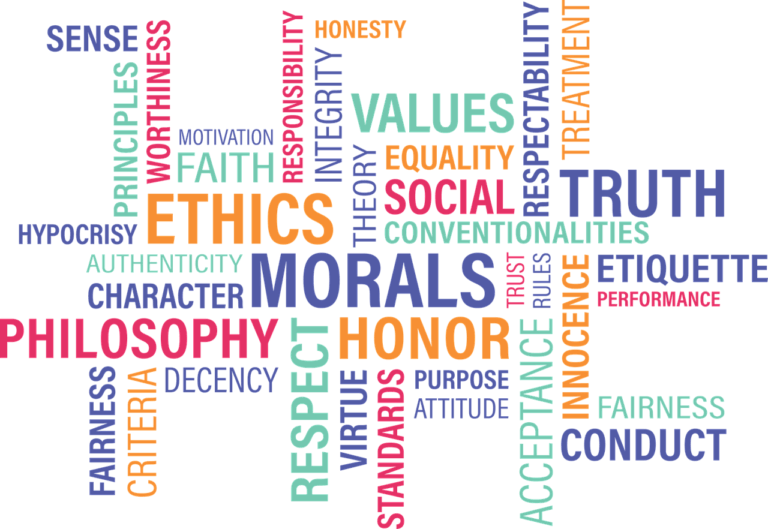In today’s dynamic job market, where talent and skills are abundant, businesses are increasingly recognizing the importance of integrity as a critical factor in hiring decisions. Integrity goes beyond mere professional competence; it speaks to the ethical foundation of an individual. Questions are designed to discover an applicant’s attitudes toward dishonest actions and determine their participation in such behavior.
What are the Types of Integrity Tests?
Integrity tests are designed to evaluate an individual’s trustworthiness, reliability, and adherence to ethical standards. Unlike traditional skill-based assessments, integrity tests aim to uncover aspects of a candidate’s character and ethical decision-making processes. It’s intended to determine a person’s honesty and integrity. These tests often include scenarios and questions that simulate real-world situations, allowing employers to gauge how candidates may respond when faced with ethical dilemmas.
-
Overt Integrity Tests
These tests directly assess a candidate’s attitudes toward dishonest behavior and their willingness to admit to past wrongdoing. By presenting questions that require straightforward responses about one’s ethical stance, these tests provide a clear insight into a candidate’s self-awareness and honesty.
-
Personality-Based Integrity Tests
These tests explore personality traits associated with integrity, such as conscientiousness, emotional stability, and agreeableness. By examining these traits, employers can gain a more holistic understanding of how an individual’s inherent characteristics align with ethical behavior in the workplace.
-
Situational Judgment Tests (SJT)
SJTs present candidates with hypothetical scenarios related to the job and evaluate their decision-making processes, focusing on ethical considerations. These tests simulate real-world situations, providing employers with valuable insights into how candidates are likely to handle ethical challenges in the workplace.
How is an Integrity Test Measured?
The measurement of integrity involves a meticulous combination of qualitative and quantitative methods to ensure a comprehensive evaluation.
Here are key components of the measurement process:
-
Scoring Systems
Integrity tests are scored based on predetermined criteria, with responses categorized as positive, neutral, or negative. These scores help quantify a candidate’s level of integrity. The use of advanced algorithms and data analytics can further enhance the accuracy of scoring systems.
-
Validity and Reliability
Rigorous validation processes ensure that integrity tests measure what they intend to measure. Establishing reliability ensures consistent results over time and across different situations. Regular updates and recalibrations based on ongoing research contribute to the ongoing effectiveness of these tests.
-
Behavioral Indicators
Analysis of specific behavioral indicators, such as consistency in responses, willingness to admit mistakes, and problem-solving approaches, contributes to a nuanced understanding of a candidate’s integrity. Advanced technology, such as natural language processing, can aid in identifying patterns and subtle cues in responses.
-
Benchmarking
Comparative analysis against established benchmarks allows businesses to assess how a candidate’s integrity aligns with industry or organizational standards. The benchmarking process can be refined through continuous monitoring and feedback loops, adapting to the evolving landscape of workplace ethics.
-
Ethical AI Integration
Incorporating artificial intelligence (AI) and machine learning (ML) into integrity testing can enhance the objectivity and efficiency of the measurement process. AI algorithms can analyze large datasets to identify patterns, ensuring a more accurate assessment of a candidate’s integrity.
Why it’s Important to Give an Integrity Test
-
Risk Mitigation
Integrity tests help businesses identify potential risks associated with unethical behavior, reducing the likelihood of hiring individuals who may engage in fraudulent activities or jeopardize the company’s reputation. This risk mitigation is crucial, particularly in industries where ethical lapses can have severe consequences.
-
Cultural Fit
Assessing integrity aligns with a company’s values, promoting a workplace culture rooted in trust, accountability, and ethical conduct. This, in turn, enhances team cohesion and collaboration, fostering an environment where employees feel secure and supported.
-
Enhanced Decision-Making
Individuals with high levels of integrity are more likely to make ethical decisions in the workplace. By incorporating integrity tests, businesses can make informed decisions about hiring candidates who are not only skilled but also possess the ethical foundation necessary for sound decision-making. This, in turn, contributes to a more ethical and responsible business ecosystem.
-
Long-Term Employee Satisfaction
Employees hired based on both skills and integrity are likely to exhibit higher job satisfaction and engagement. Investing in candidates with strong ethical foundations can lead to long-term employee retention, saving businesses the costs associated with frequent turnover and recruitment.
Implement but with Proper Validation
Your business has a valid claim to determine an applicant’s honesty and integrity during the hiring process. But the test must be validated properly to prevent instances of discrimination and in some cases, excessive intrusion into the personal life of a candidate. For example, including questions about their personal habits (e.g., smoking) or political affiliations may be deemed inappropriate.
Make sure the test is relevant for the job and the result appropriate for your purpose. That means defining what personality trait you’re measuring and why that trait is necessary to a successful job performance.
The integration of integrity tests into the hiring process can be a strategic move for businesses aiming to build a workforce with strong ethical values. By understanding what integrity tests entail, how they’re measured, and their importance in the job examination process, you can make more informed decisions about your organization, fostering a culture built on trust, reliability, and ethical conduct.
Moreover, the continuous evolution of technology and assessment methodologies ensures that integrity testing remains a dynamic and adaptive tool in the hands of HR professionals, allowing them to navigate the complexities of modern hiring with confidence and precision. As the business landscape continues to evolve, so too should the strategies employed to ensure the integrity and ethical standards of the workforce.
John Clements Consultants has been providing staffing and professional hiring services for 40 years. Visit our Client Solutions page today.





